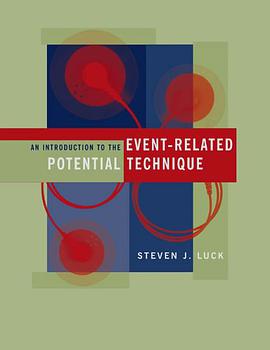Introduction to the Event-related Potential Technique
内容简介
The event-related potential (ERP) technique in cognitive neuroscience allows scientists to observe human brain activity that reflects specific cognitive processes. In An Introduction to the Event-Related Potential Technique, Steve Luck offers the first comprehensive guide to the practicalities of conducting ERP experiments in cognitive neuroscience and related fields, including affective neuroscience and experimental psychopathology. The book can serve as a guide for the classroom or the laboratory and as a reference for researchers who do not conduct ERP studies themselves but need to understand and evaluate ERP experiments in the literature. It summarizes the accumulated body of ERP theory and practice, providing detailed, practical advice about how to design, conduct, and interpret ERP experiments, and presents the theoretical background needed to understand why an experiment is carried out in a particular way. Luck focuses on the most fundamental techniques, describing them as they are used in many of the world's leading ERP laboratories. These techniques reflect a long history of electrophysiological recordings and provide an excellent foundation for more advanced approaches.The book also provides advice on the key topic of how to design ERP experiments so that they will be useful in answering questions of broad scientific interest. This reflects the increasing proportion of ERP research that focuses on these broader questions rather than the "ERPology" of early studies, which concentrated primarily on ERP components and methods. Topics covered include the neural origins of ERPs, signal averaging, artifact rejection and correction, filtering, measurement and analysis, localization, and the practicalities of setting up the lab.
......(更多)
作者简介
......(更多)
目录
......(更多)
读书文摘
脑定位的作用被夸大了,很多研究者似乎认为,了解认知过程在哪里发生,就等于了解认知过程是怎样发生的。
......(更多)






